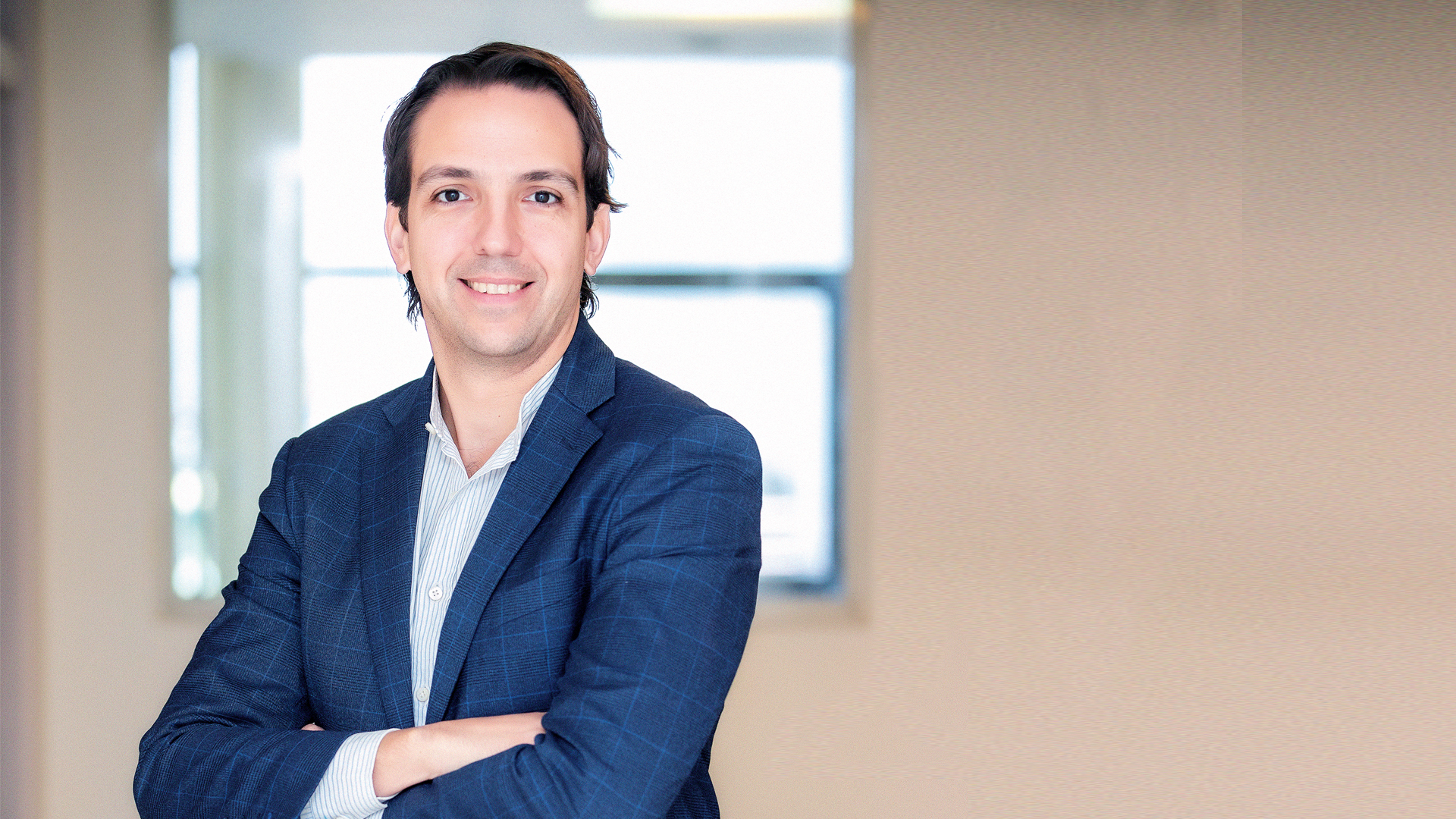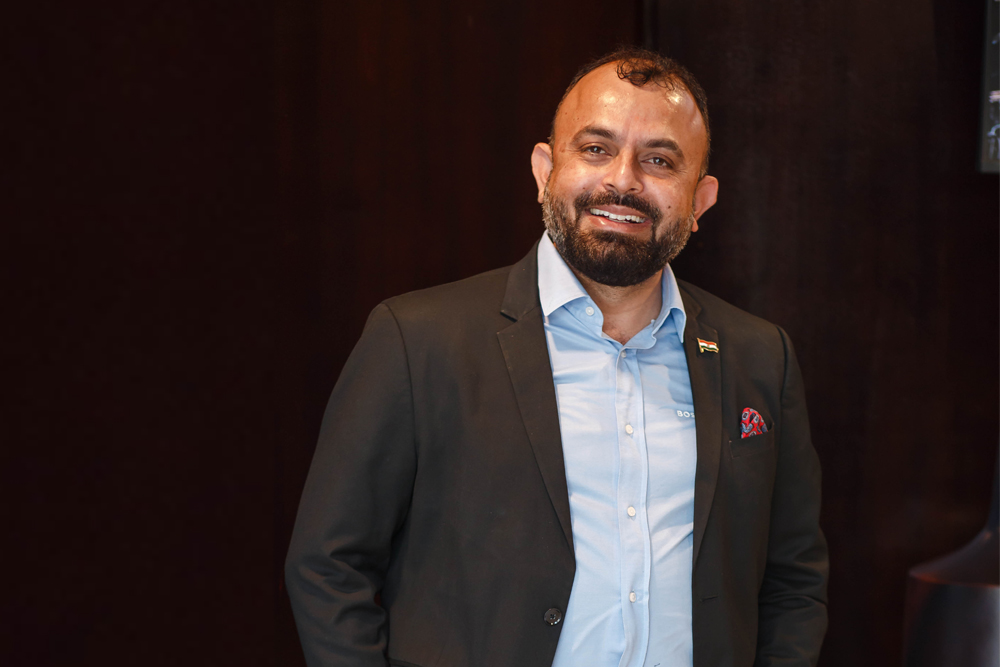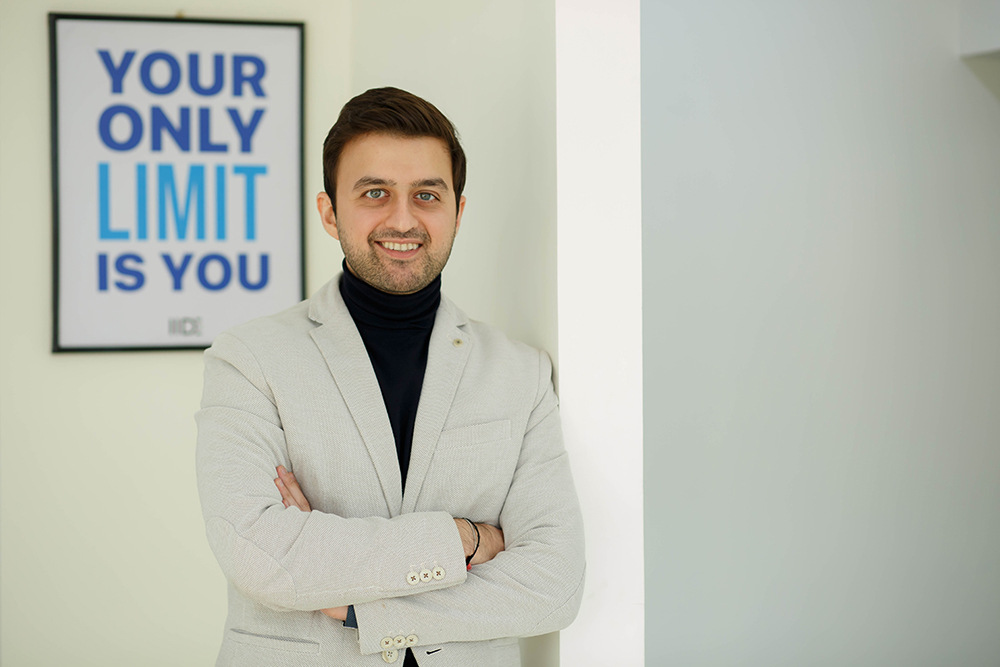
Sandipa Thapa Basnyat
Professional Certified Coach - ICF, Professional Trainer and Co-founder of Silver Mountain School of Hotel Management
The term ‘coaching’ has become ubiquitous with business and professional growth across the world in recent days, but most people are still unfamiliar with what the profession actually entails. Even in Nepal, there are many people who identify themselves as coaches, some with as little as a few hours of online certification to their credit. In this issue of Business 360, we caught up with Sandipa Thapa Basnyat who is a Professional Certified Coach from the International Coaching Federation to learn what coaching really entails and why it has become the buzzword in recent days. “My journey in coaching started about 15 years back when I first volunteered at the pre-release centre of a prison in Montgomery County in Maryland where I used to help people find jobs when they are out of prison,” she shares. Later, Basnyat joined the George Washington University School of Business where she not only studied coaching but also worked as a Senior Career Coach. Specialised in career and leadership coaching, she has helped over 1,000 international job seekers in their career transition and has also been awarded the ‘Most Influential 50 Global Coaching Leader 2016’ by World Coaching Congress. “I was also the President - Operation at the World Bank Family Network which has approximately 5,000 members across the world and co-founded the Career and Volunteer Group,” states Basnyat. Basnyat started her career in management 23 years back and in 2002, she co-founded the Silver Mountain School of Hotel Management where she looks after management aspects and on-campus recruitment. In addition, she also provides career and leadership coaching on a one-to-one basis and through workshops to multilaterals like the UNDP, World Bank Family Network and Oxfam, among others. Excerpts of a conversation with Basnyat:The coaching profession has been gaining popularity in recent days in Nepal but what does it actually entail? How do you define the term ‘coaching’?
This is a very pertinent question because normally in our part of the world people consider coaching as training or mentoring which are actually totally different. Coaching is a journey where you take the help of a coach who walks along with you but does not hold your hand. They show you the direction. A coach helps you understand yourself and figure out your potential. The goal that is set after a coaching session is not dictated by the coach but by the self and which is achievable. So, a coach helps a person transform along the journey. However, training is about imparting the knowledge the trainer possesses to the participants whether they take it or not. A coach walks along with you. Meanwhile, a mentor is someone you look up to and shadow along. During a mentorship, you shadow the habits, behaviour and skills of the mentor but coaching is something where you do not follow anybody. To be precise, a coach walks along and helps you look inward to find your true potential and work on that. For instance, a person might be facing weight problems and wants to lose 10 kgs. A mentor could be somebody who goes for a morning walk or jog to shed extra weight and the concerned person takes tips from the mentor. But as a coach, I will sit and talk and then write down the problems the person is facing and why they have not been able to lose weight. A coach will thus dig into those questions and get to the bottom of the reason why that person is facing that problem. So, you are not imitating or shadowing somebody, the causes come from within you. We look for the motivational factors within you so that you can travel that journey and reach your destination.You have been successfully running the Silver Mountain School of Hotel Management as its Co-founder. How does coaching fit in?
Silver Mountain School is an entrepreneurial journey we started 20 years ago. I look after and help students during the on-campus recruitment process. We are probably the first college in Nepal to have a four-year career management programme. In a way this also helped me a lot when I took up coaching because I have worked with so many students helping them with their careers. Coaching is something I actually had to reinvent and relearn because my husband is in the international development sector which involves a lot of travelling to new places. So, as I moved along with him, I had to reinvent my career. I have actually seen hundreds of people like me who have had to reinvent and redefine their careers with every job move that the partner makes. So that is one reason why coaching is a bit different for me but I love it.Are there specific areas of coaching or is it a general term?
Like in every other field, there are different areas of coaching and you can find coaches specialised in different facets. If a person wants, they can find a business coach or an entrepreneur coach or a leadership career coach. In fact, there are also transformational and spiritual coaches. So, it is a diverse field but what I always harp on is that to take up the coaching profession you must have a certain mindset where you can create a safe and open environment for the client. It is totally different from counselling because in coaching the answers come from within the client and not from somebody else. I specifically focus on leadership, career and self-management coaching but every coach has to dive into self-management. So, I would say my areas of focus are career and leadership coaching.How exactly can a person benefit after coaching?
The major benefit of coaching is that the coach walks along with you. After a coaching session, a person will know where they are because most of the time we are running around and trying to find out about things from the outside world. However, whatever you need to change has to come internally, from within you. A coach is basically someone who guides you. Coaching is even more important in the career aspect because many a times we feel we are stuck in a career but we are still working there. It is also necessary during a leadership journey. People need to realise that when they are in a leadership position they are always alone and need somebody who can help them. For instance, if you want to do a coaching session with me, let’s say for your career, the first thing I will help you is in identifying your strengths and weaknesses. I can then help you to map out the potential you possess and lastly, I can provide you the tools to guide you to accomplish your goal. Coaching is still a very new concept to Nepal, whether it be for career or leadership and most people have yet to realise how valuable its contribution is. I have noticed that most of the time people in leadership positions feel they don’t need anybody to walk along with them. They think they know everything and that is the biggest drawback. It is their ego that stops them from going to a coach.
Coaching, they say, focuses on the now and here and not the future. Could you elaborate…
Yes, it deals with the now and the present because usually we are focused either on the past or the future. If you actually sit down and introspect you will realise we do that on a daily basis, it is human nature. Right now you are here because you have to finish an article and I am here because I have to give the interview. But most of the time we forget to live in the present; in such a situation how can we imagine going to the future. Coaching makes you realise what you are now and then what are steps needed to be taken to move forward. It does not take you backwards but forward. So, it is a realisation of the present situation.What goes into making a good coach? How can someone differentiate between a good coach and a bad one?
There are certain things that a good coach must possess. The first requirement I would say is that the feeling of wanting to help someone must come from within. Also, you must feel satisfied when helping somebody, when you see the change. A good coach will be able to feel the difference they have made. The other thing is we see a lot of people calling themselves a coach but to be a good coach one must have a certain certification or a degree from a reputed institute because I was coaching previously but I learnt the true meaning of coaching when I actually went to a coaching school. I understood what coaching means and I was able to understand the difference between coaching and other professions which sound similar. There are certain ways and things a coach needs to do and not do as compared to a trainer, professional counsellor or motivational speaker. There is a very fine line dividing a coach and mentor or trainer and one must be able to fully grasp that. A coach should always try to acquire a certification from a certified body as that is where you get to learn all the finer details because at times it can get complicated. If you cannot detach yourself from the situation, then instead of helping you could actually be harming people.Does certification ensure that a person becomes a good coach?
Does a certification signify that I am a good coach? Now, that’s very intriguing but I don’t think just because somebody has a certificate they become a good coach. Having said that what I would also like to mention is acquiring a certification from a credible institution is important because once in the certification process it is not only about studying theoretically. They have a lot of practical hours, for instance during my certification I had to complete 500 hours of practical training before I could be certified. They do a 360-degree evaluation. They evaluate minor things like how we handle people and situations and even the way we speak is looked into. There is a gamut of criteria which is taken into consideration and one must meet all before the certificate is awarded. That’s why I say a coach needs to have a coaching body’s certification but it takes years of experience before one can actually be called a good coach. You cannot just walk around saying you have two years of experience and hence you are a coach. Whichever area a coach is working in it needs many years of experience before they can call themselves a coach in the real sense. What one needs to realise is this is not something where you have a formula and apply it and the problem is resolved. Every human is different from the other. At the end of the day, one needs to always have the enthusiasm to help people, to make a change.What has been the most challenging moment in your coaching career?
The most difficult time was when I was volunteering in the pre-release centre at the prison in Montgomery. My first client was a person who was stepping out of prison after serving 25 years for a murder case. For him, the world had totally changed. He didn’t even know how to use a computer. Sitting with him was very difficult for me on the first day but later I got used to the situation. I had to help him adjust to the technological changes that had taken place and make him understand how the world works. It is till date the most difficult assignment but it was a very good learning experience and a satisfying one because I was able to help him navigate through various job options and find a job.Why do you think coaching is gaining popularity in Nepal?
I think people are seeing the benefits of undergoing a coaching session because it is for the long term. I am also a professional trainer and I have been training a lot of people. The difference is when you conduct training you have an impact for just a couple of hours. I have noticed that participants during a training session will take 5% of what has been taught at the end of the day after sitting for five to six hours. But coaching sessions are very short, a maximum of one hour. So once you do it on a weekly basis it is sort of a self-reminder and self-realisation for the people.In which sector do you feel is coaching particularly needed?
I feel coaching is required in all the leadership roles in our country. I am not talking about only the top leadership roles but also the mid-level leadership roles. Especially, in the corporate world, here I see leaders but they don’t coach. They are different definitions of leaders but they are more of old-school type of leaders in Nepal. They need to change with time. Any person can be a leader but a coach being a leader understands the self. They have more self-awareness and know what they want. They have a very clear path in leadership. And for a coach, emotional intelligence plays a big role and any coach must possess and be very good with that. A leader might not think about that aspect. It is also the youths who need coaching. This concept is very new here and not practised. In developed countries coaching starts from high school, so students know what they want to do right after stepping out of school. Most of the time in our country while choosing their subjects students do not know what they want to do. It is usually what their parents want them to do or there is external influence from friends. Now that is creating a lot of gap between desire and fulfilment and there is a lot of dissatisfaction among students. And this is leading to depression and other health issues among youths. READ ALSO:
Published Date: March 30, 2022, 12:00 am
Post Comment
E-Magazine
RELATED ETC


.jpg)


